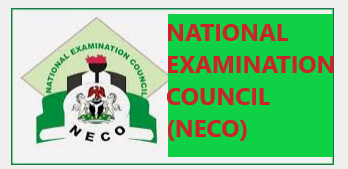See the complete NECO Accounting Questions and Answers 2025 in this article.
I am sure you will be excited that you are privileged to be one of those candidates who will have access to the NECO Accounting Questions and Answers for the 2025 NECO SSCE. This article has been carefully organised to help all the candidates prepare their minds for the kinds of questions and experiences that they are going to encounter on the day of the examination.
Kindly read this post, carefully to the end, in order to get every necessary piece of information you must have been searching for about NECO Accounting 2025.
NECO Accounting Answers 2025
Today’s NECO Accounting OBJ Answers:
1-10: CECAEEDDEC
11-20: EABCDABDDC
21-30: ABBBEBEDAC
31-40: AEBABBBBEB
41-50: CEDADBADEE
51-60: DDDACADECD
Get more tips: How to Pass your NECO Examination at One Sitting
Essay Answers:
(1a) A bank reconciliation statement is a document that compares the balance of a company’s cash book (record of transactions) with the balance shown on the bank statement (provided by the bank). It helps identify any differences or discrepancies between the two balances.
(1b)(i) Outstanding cheques: Cheques issued by the company that have not yet been presented for payment by the recipients.
(ii) Deposits in transit: Cash or cheques received by the company that have not yet been recorded by the bank.
(iii) Bank charges and fees: Charges imposed by the bank for services or penalties that have not yet been recorded in the cash book.
(2i)
Proforma Invoice:
A pro forma invoice is a preliminary invoice sent to the buyer before the shipment of goods, indicating the weight, value, and other details of the goods to be shipped. It’s used to obtain import/export licences, open letters of credit, and for customs purposes. Unlike a standard invoice, it is not a request for payment but rather a statement of commitment that helps in planning and budgeting for the buyer
(2ii)
Goodwill:
Goodwill is an intangible asset that arises when a business is purchased for more than the fair value of its identifiable net assets. It represents the value of a company’s brand, customer relationships, employee relations, and other factors that contribute to its earnings potential beyond its tangible assets. Goodwill is recorded on the balance sheet and is subject to impairment testing but is not amortised.
(2iii)
Consignee:
A consignee is the person or entity to whom goods are shipped and delivered. In the context of consignment, the consignee is responsible for selling the goods on behalf of the consignor (the owner of the goods). The consignee typically does not own the goods but holds them in trust until they are sold, at which point the proceeds are shared as agreed.
(2iv)
Preference Share:
A preference share is a type of equity security that entitles the holder to a fixed dividend before any dividends are paid to common shareholders. Preference shares usually do not carry voting rights, but they have a higher claim on assets and earnings than common shares. In the event of liquidation, preference shareholders are paid out before common shareholders.
(2v)
A three-column cash book is an accounting record that tracks all cash and bank transactions in a business, along with discounts. It has three main columns for each side (debit and credit): cash, bank, and discount. This cash book provides a comprehensive view of the business’s cash flows, bank transactions, and any discounts allowed or received, making it a vital tool for managing liquidity and financial transactions.
(3a)
(PICK ANY FIVE)
(i) Errors of Omission: When a transaction is completely omitted from the accounting records. For example, if both the debit and credit entries for a sale are not recorded, the trial balance will still balance.
(ii) Errors of Commission: When an entry is made to the wrong account but on the correct side. For instance, posting a receivable to the wrong customer account will not affect the trial balance.
(iii) Errors of Principle: When a transaction violates fundamental accounting principles. An example is recording a capital expenditure as a revenue expense. This error affects the financial statements but not the trial balance.
(iv) Compensating Errors: When two or more errors cancel each other out. For example, an overstatement in one account might be offset by an understatement in another.
(v) Errors of Original Entry: When both the debit and credit sides of a transaction are incorrectly recorded with the same incorrect amount. For example, recording a sale of N500 as N50 in both the sales and cash accounts.
(vi) Errors of Reversal: When the debit and credit entries of a transaction are reversed. For instance, recording a payment to a creditor by debiting the creditor’s account and crediting the bank account.
(vii) Errors of Duplication: When a transaction is recorded more than once. If both instances of the duplicate entry are equal, the trial balance will still balance.
(3b)
(PICK ANY FIVE)
(i) Raw Material Costs
(ii) Direct Labor Costs
(iii) Manufacturing Overheads
(iv) Depreciation of Manufacturing Equipment
(v) Indirect Materials
(vi) Indirect Labor
(vii) Work-in-Progress Costs




See also:
NECO Civic Education Questions and Answers for 2025 | Essay and Objectives
NECO Biology Questions and Answers for 2025 | Essay and Objectives
NECO Government Questions and Answers for 2025 | Essay and Objectives
NECO Biology Practical Specimen, Questions And Answers 2025 | Complete Specimen And Solutions
NECO Home Management Questions And Answers 2025 | Essay And Objectives
NECO Mathematics Questions And Answers For 2025 | Theories And Objectives
NECO Agric Questions And Answers 2025 | Essay And Objectives
NECO Marketing Questions And Answers 2025 | Theories & Objectives
Everything that you have read in this article is all that you need to know about the NECO Accounting Questions and Answers 2025. In case you have any other questions, kindly drop them in the comment section. Our team will be there to respond to you as soon as possible.

I want to pass my neco